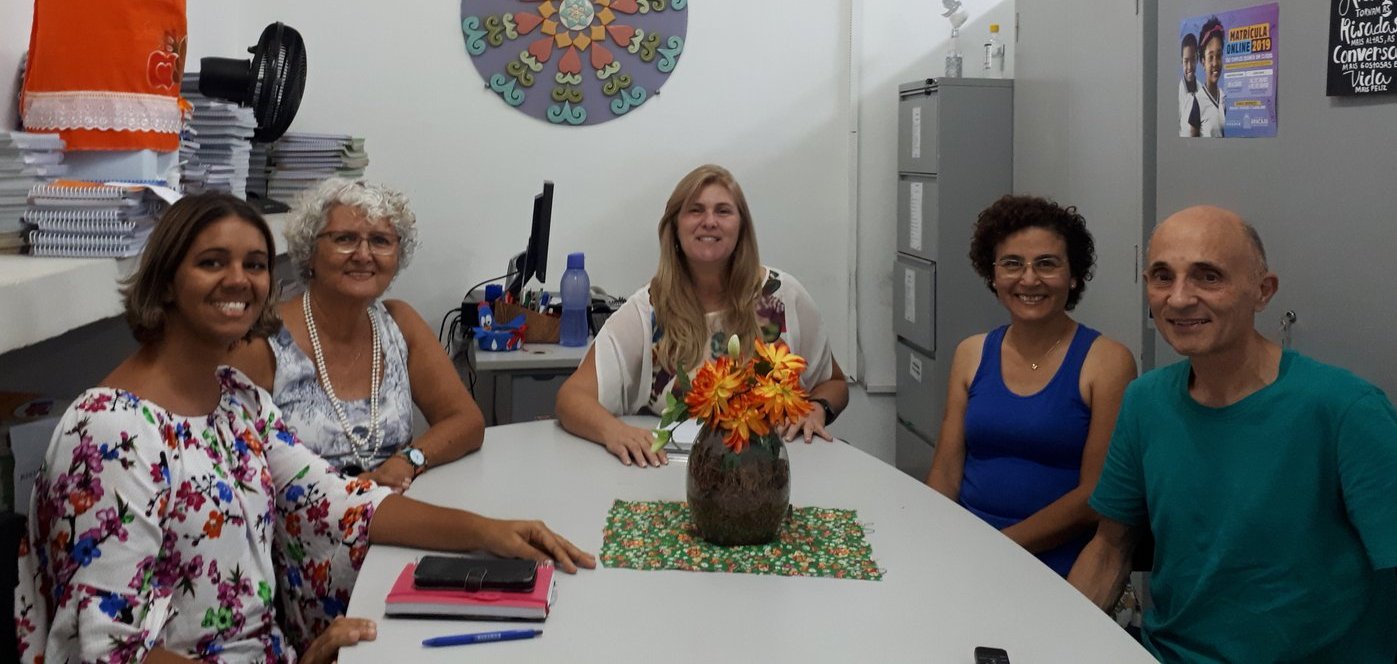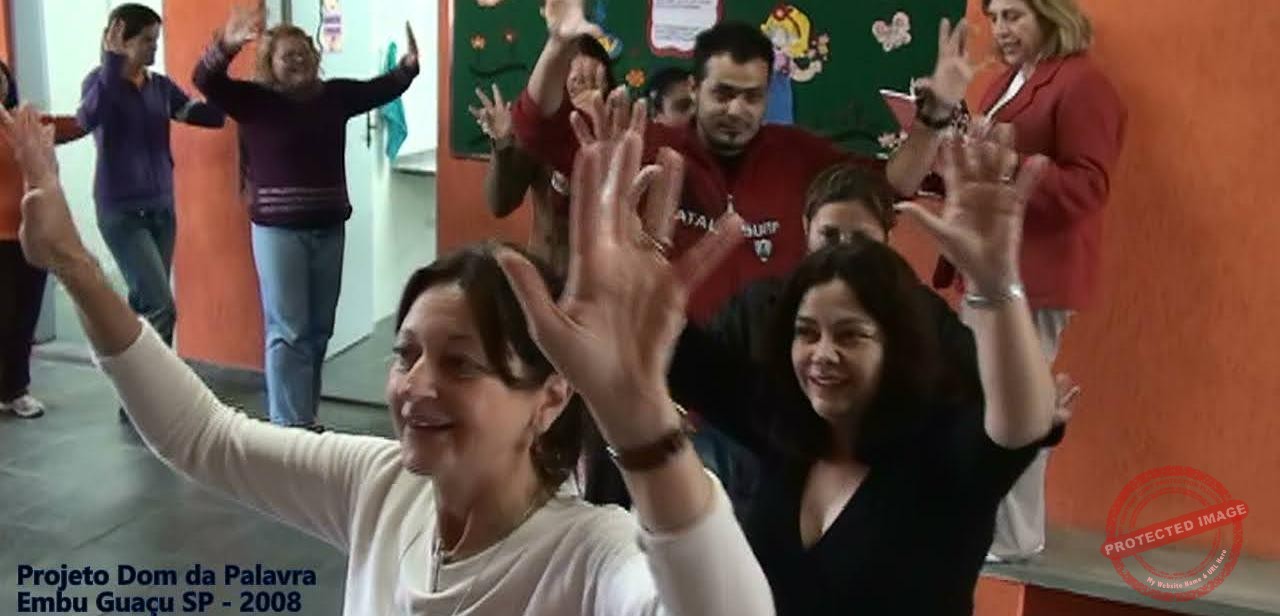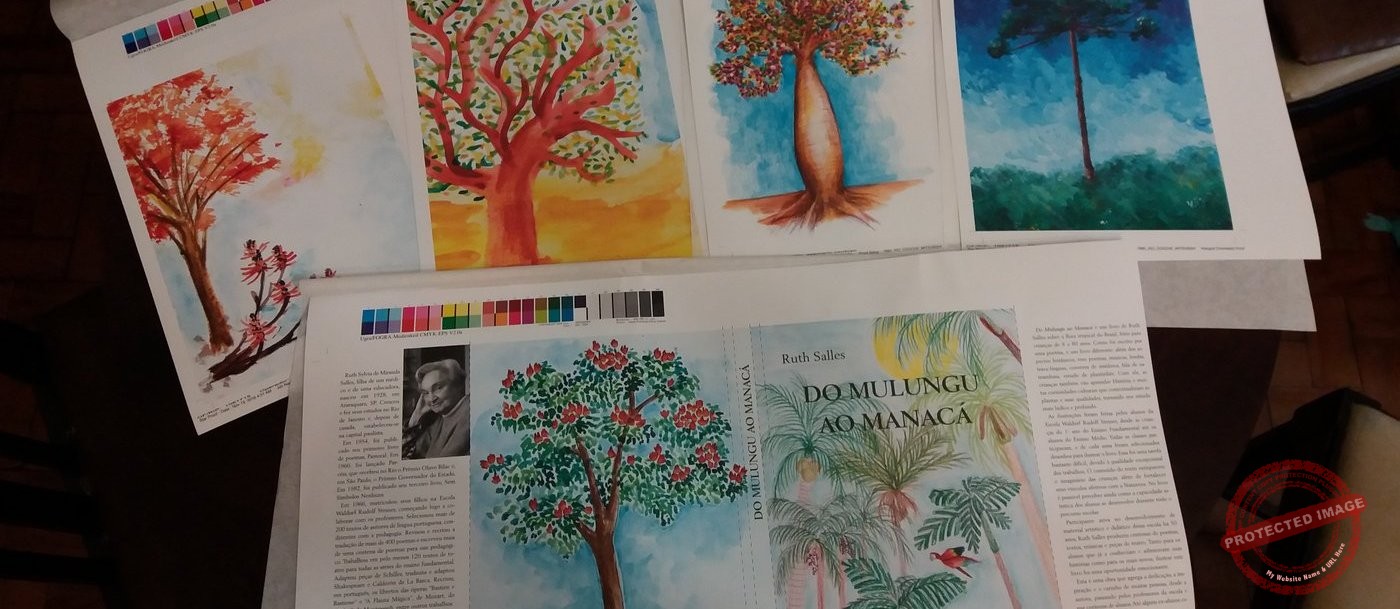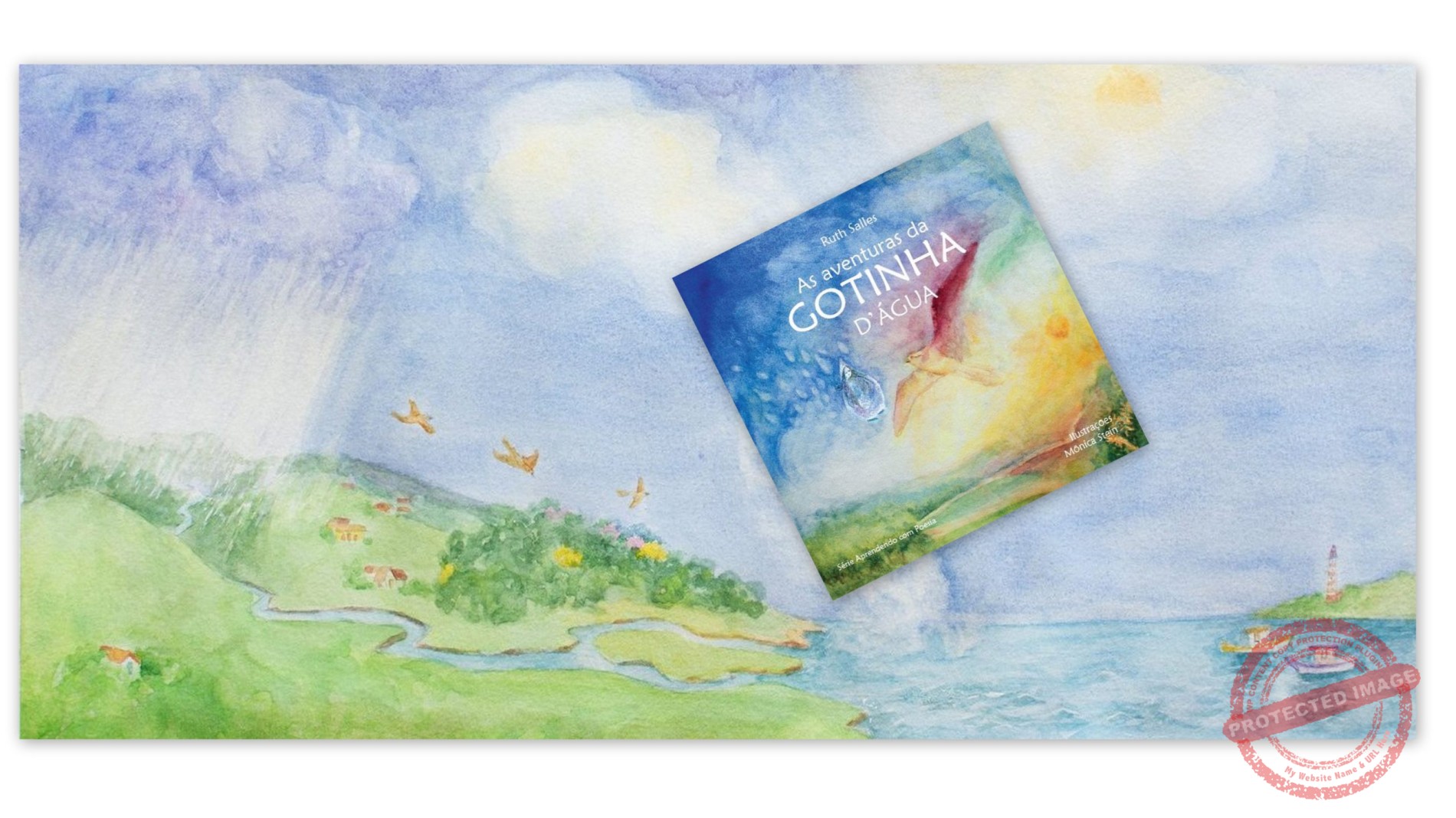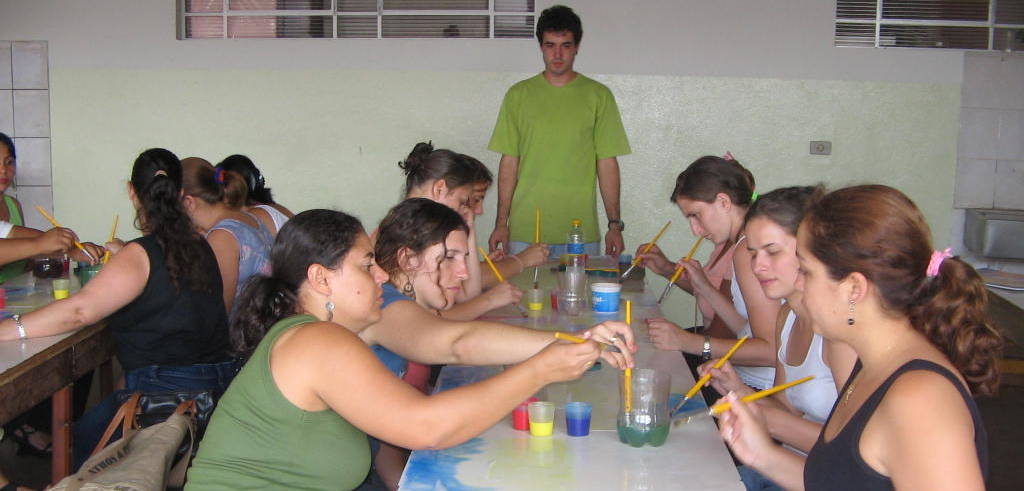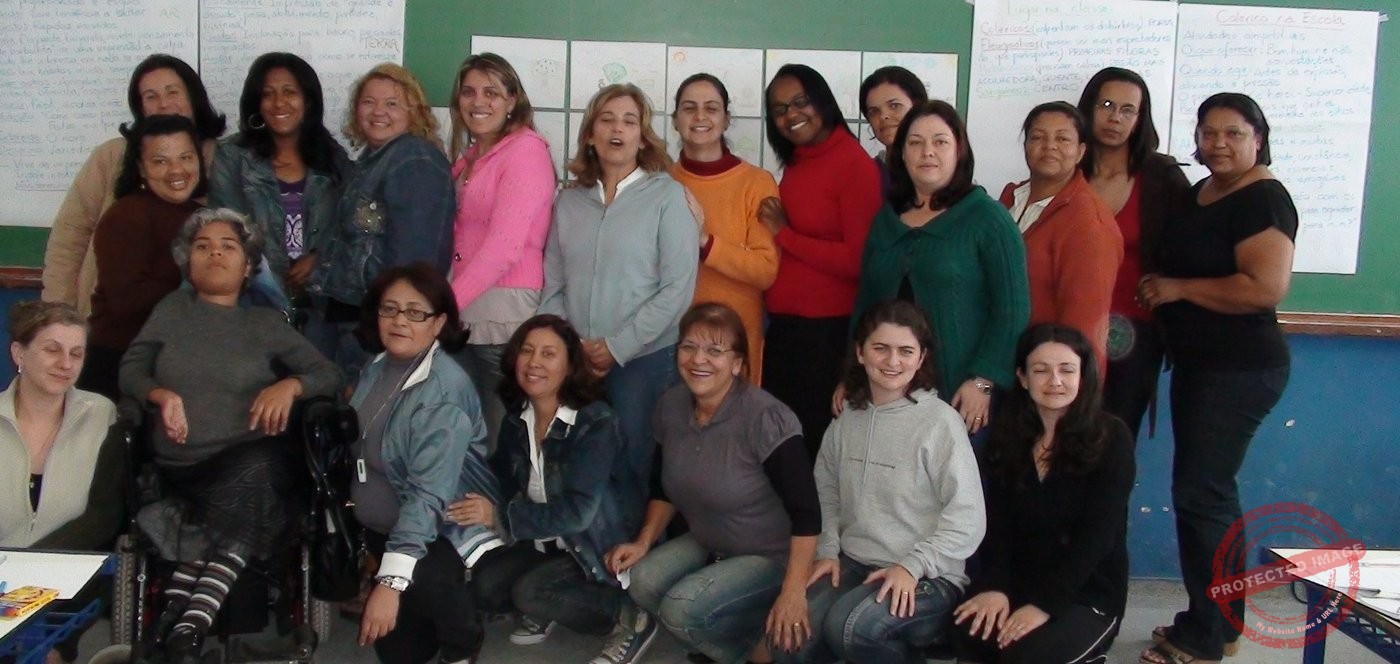[print-me target="body"]
Participation of Ruth Salles
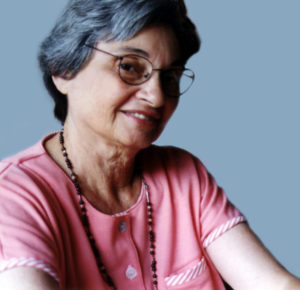 In July 2005, the “I Brazil Congress of Waldorf Pedagogy” took place in the Demétria neighborhood, in Botucatu, organized by the Federation of Waldorf Schools in Brazil and the Aitiara do Campo School. The topic addressed at this important meeting of Waldorf Pedagogy in our country was “Mother Tongue”. For six days we were immersed in the universe of language, and the presentation by the poet Ruth Salles took us to the heart of the entire congress.
In July 2005, the “I Brazil Congress of Waldorf Pedagogy” took place in the Demétria neighborhood, in Botucatu, organized by the Federation of Waldorf Schools in Brazil and the Aitiara do Campo School. The topic addressed at this important meeting of Waldorf Pedagogy in our country was “Mother Tongue”. For six days we were immersed in the universe of language, and the presentation by the poet Ruth Salles took us to the heart of the entire congress.
For this endeavor, many speakers offered their knowledge to an audience of approximately 400 people.
The richness of the Portuguese language was revealed to us through countless experiences, thus bringing us a deep reflection on the expression of the soul of the Brazilian people.
In the afternoons, we had the pleasure of meeting a new aspect of renowned writers who turned their lives towards the search for the expression of their feelings. Machado de Assis, João Guimarães Rosa, Cecília Meireles and Sophia de Mello were present in these lectures, and in a masterful way we were able to get a little closer to the essence of each author.
On the last afternoon, on the 29th of July, we received a fifth and precious gift. The dear poet, composer and author Ruth Sylvia de Miranda Salles attended the congress to tell us a little about her work.
From a very young age, Ruth Salles had approached poetry. Even before choosing Escola Waldorf Rudolf Steiner (formerly Escola Higienópolis) as the school for her children, she had already been awarded for her work. When the teachers learned of such an ability, they began to ask her for help, and so the talented poet began to receive new and important “tasks”.
For 39 years, Ruth Salles has been part of the history of Waldorf Pedagogy in Brazil. In this very special meeting, she told us a little about her family trajectory, long involved in the world of written and musical language. All his education gave him significant support so that he could, one day, contribute to the learning of so many generations of Waldorf schools across the country.
With contagious sympathy and a lot of good humor, she brought us some memories of her creation moments, either by a request from school teachers or even by situations lived by her in her troubled life as a mother and wife.
For many, that afternoon, this was their first contact with the author Ruth Salles. Although they had already worked with some of his texts in class, among the hundreds of verses and poems he wrote, they still did not have the dimension of his importance in the context of the history of Brazilian Waldorf Pedagogy. In her texts, Ruth Salles was committed to providing students with experiences of historical events and geographical aspects, texts that help the understanding of grammar, mathematics, science (astronomy and mineralogy), verses for eurythmy classes, rhythmic verses for the initial moment of the class and for the improvement of “speech” and diction.
Ruth Salles also turned her gaze to the theater plays staged from the 1st to the 8th grade of Elementary School. There are countless pieces by her and other authors that could be worked on by her through translations and adaptations of the original texts. This effort made it possible for teachers to rely on texts by European authors such as William Shakespeare, Friedrich von Schiller, Helmut von Kügelgen and Calderón de La Barca, among others. He wrote beautiful plays based on texts by Charles Dickens and Mark Twain.
Ruth Salles enthusiastically described her creation process. Each work is written from a deep study. He presented us with the example of the play for the 4th year of elementary school “A Viagem de Martim Afonso”. To tell this part of our history, Ruth Salles learned about the particularities of a caravel, its crew and its language, names of nautical instruments and cartographic orientation.
All this content, deeply elaborated, transported and still transports the student to a magical environment. This experience (I can confirm it because I was a student of this pedagogy and today because I am also one of its teachers) is worth much more than any exposition of historical facts or countless questionnaires that deal with the subject.
In the beginning, children told their rhythmic verses about the Woodpecker, which illustrated how their creations and translations work through carefully chosen words. During his speech, there were also interludes. A group of children and young people from the 3rd and 7th grades of the Aitiara School represented their translation of Kopisch's verses (said by the eurythmist Suzana), which deal with the help of elves to people of different professions. And we could count on Professor Denise, from Eurythmy, who invited us to eurythmically recite the verse “À Beira da Baía”.
For everyone, this afternoon was able to crown with grandeur the theme addressed, “The Mother Tongue”. The presentation by the poet Ruth Salles took us to the heart of the entire congress. The language of a people brings within its words, its phonemes, the expression of its individuality.
No one more than our dear Ruth Salles knows and knows the “Spirit of the Portuguese Language” and through her talent she presents us with her creation.
At the end of his explanation, the auditorium, with the help of gongs simulating the sound of clocks, offered the beautiful song composed by Luiz Roberto Oliveira (his cousin) with lyrics of his own, “Carrilhão da Noite”. Teachers from many generations were moved by this tribute to the one who, with generosity and love, dedicated her life to education.
Without Ruth Sylvia de Miranda Salles our path would have been many times more difficult. Thank you!
Written by Cecília de Camargo Bittencourt Rinaldi.


